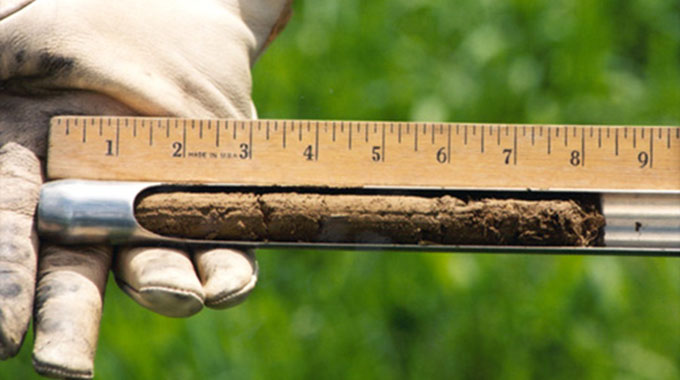
Sifelani Tsiko-Agric, Environment & Innovations Editor
Farmers have been advised to have their soils tested to determine the levels of acidity and alkalinity ahead of the 2021 – 2022 main farming season, to get higher yields and promote the country’s food security position.
Seed Co head of agronomy, Wendy Madzura, said this at a virtual symposium held yesterday to highlight the importance of soil testing in the agricultural system.
“Farmers must conduct soil tests on time before the start of the 2021 – 2022 cropping season,” she said.
“Soil management and testing is important for boosting crop yields and ensuring sustainability of the soils. Our farmers need to take this seriously to avoid poor crop yields and the degeneration of the quality of their soils.”
Zimbabwe’s largest seed company Seed Co, hosted the virtual symposium on the importance of soil testing in boosting productivity and sustainability.
“Soil is very critical in improving our crop yields and securing bumper yields,” said Madzura.
“Most soils have become very exhausted and fatigued and farmers need to conduct regular soil to determine ways of nourishing our soils. Most farmers are not aware of the importance of soil testing and we need to work closely with government, agricultural extension workers, NGOs and funding partners to raise awareness and help them to nourish their soils to become productive again.”
Emmanuel Chikwari, chief research officer and head of Chemistry and Soil Research Institute in the Ministry of Lands, Agriculture, Fisheries, Water and Rural Resettlement, said conducting proper soil testing before planting was a sure way to get healthier crops and a bumper harvest.
“Conducting research on soil, nutrient and water management is vital for increased crop productivity. Farmers need to know the acidity and alkalinity of their soils as this has an important bearing on all other factors on improving crop productivity,” he said.
“A present, there is still low appreciation of soil testing by a majority of our smallholder farmers. We need to do more to raise awareness and encourage more farmers to embrace soil testing as an important part of good agronomic practice.” He urged farmers to have their soils tested to ascertain the level of acidity and alkalinity before planting or applying fertilisers.
“The 4R stewardship approach is very critical – the right source, right rate, right time and right place serve to guide farmers to management practices that help the nutrients on and in the field. Without soil test results, one may not know what the soil lacks,” the head of Chemistry and Soil Research Institute said.
Chikwari said the government has since 2020, decentralised soil fertility testing to eight provinces in the country as part of efforts to help roll out the programme and to bring testing facilities closer to farmers at minimum cost.
“The Government has decentralised soil testing services to eight provinces in the country. As of 2020, the ministry rolled out the decentralisation programme to have soil testing centres in each of the provinces,” he said.
“We are aiming to have one laboratory in each province and this is work in progress.”
In addition, he said the Government is working to develop a digital soil map for Zimbabwe to provide access to location – specific information on soil properties for any province, district or a particular area of interest.
This interactive map, he said, would provide information that will be useful to make new crop and site specific fertilizer recommendations for the country.
Chikwati said the maps could be used to make more efficient management decisions on import, distribution and recommendation of appropriate fertilizer types as well as support the selection of suitable crops and extension programs for improving soil health.
A full soil fertility test costs US$15 or equivalent at the on-going exchange in local currency.
